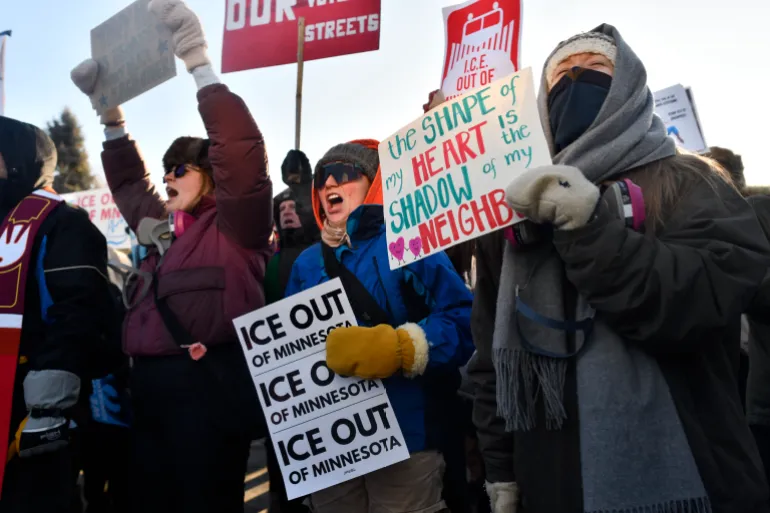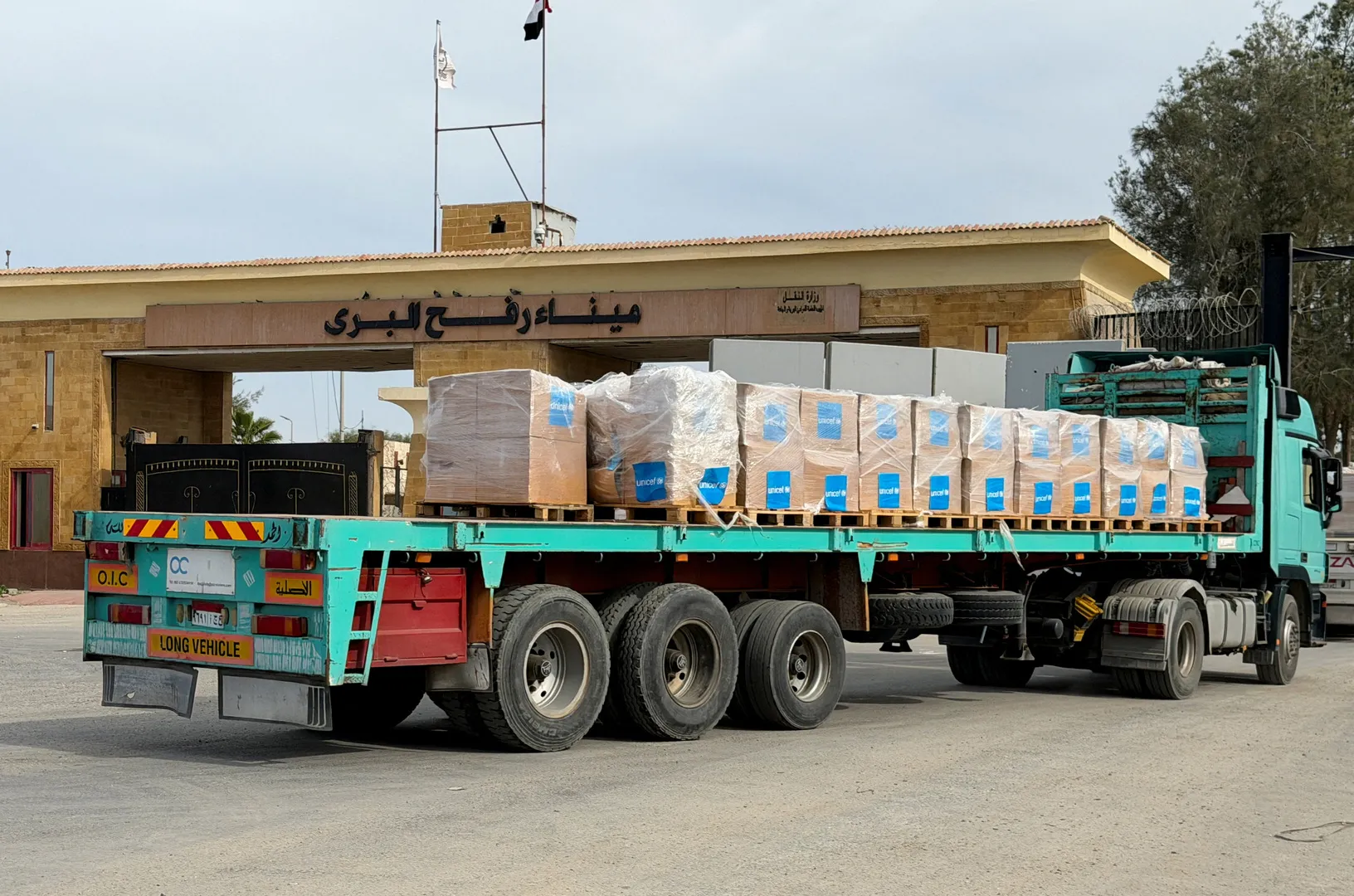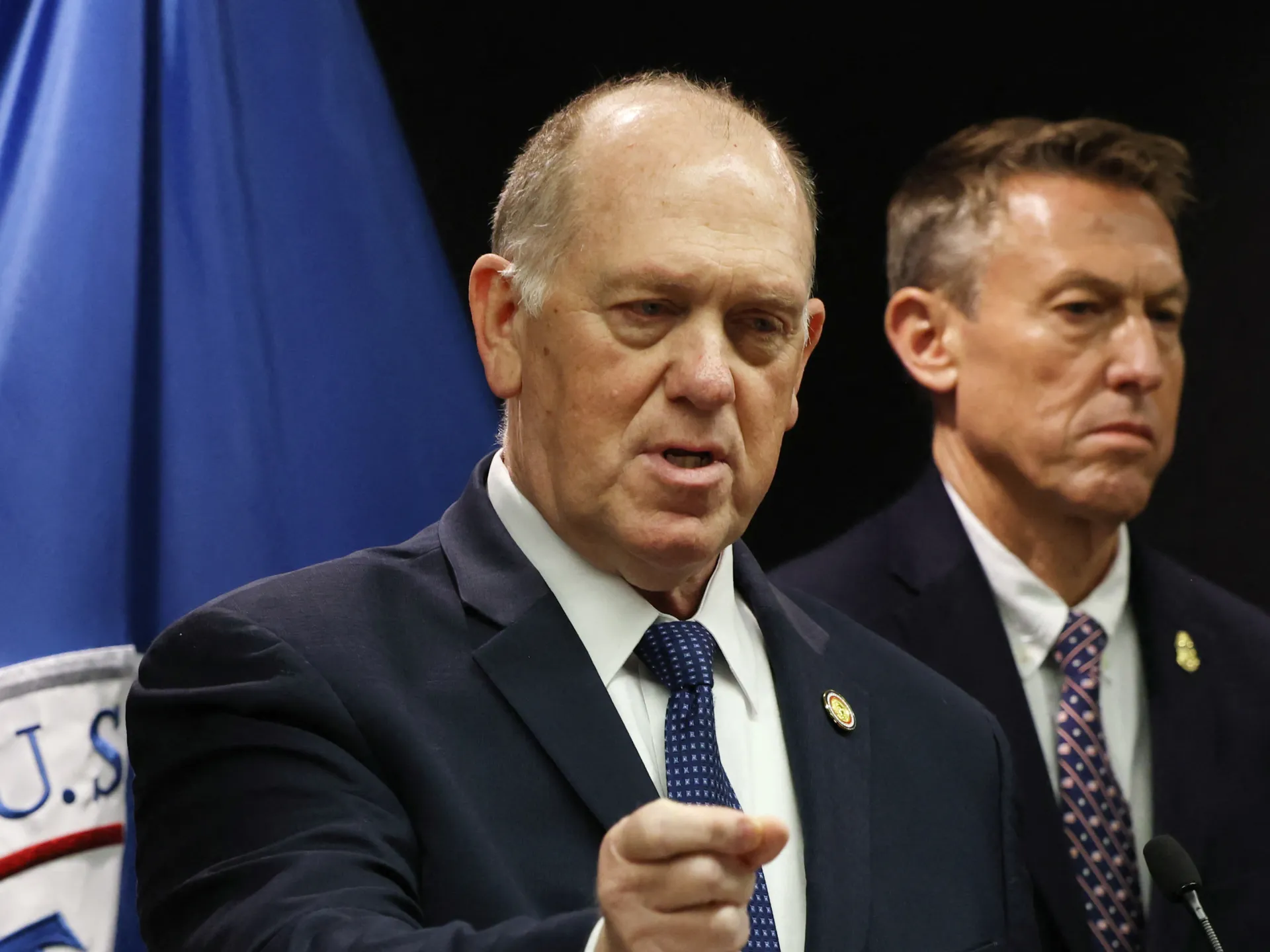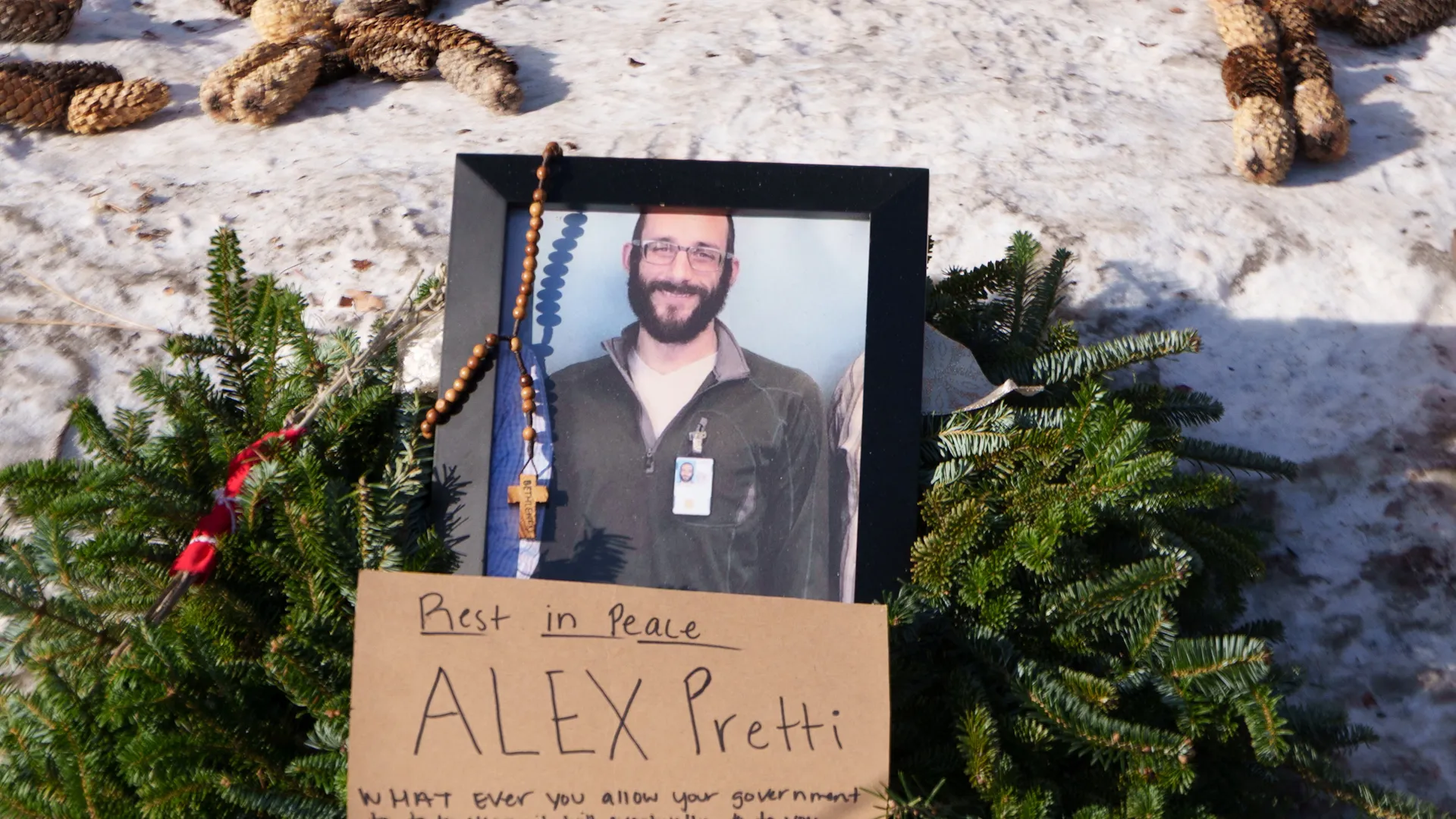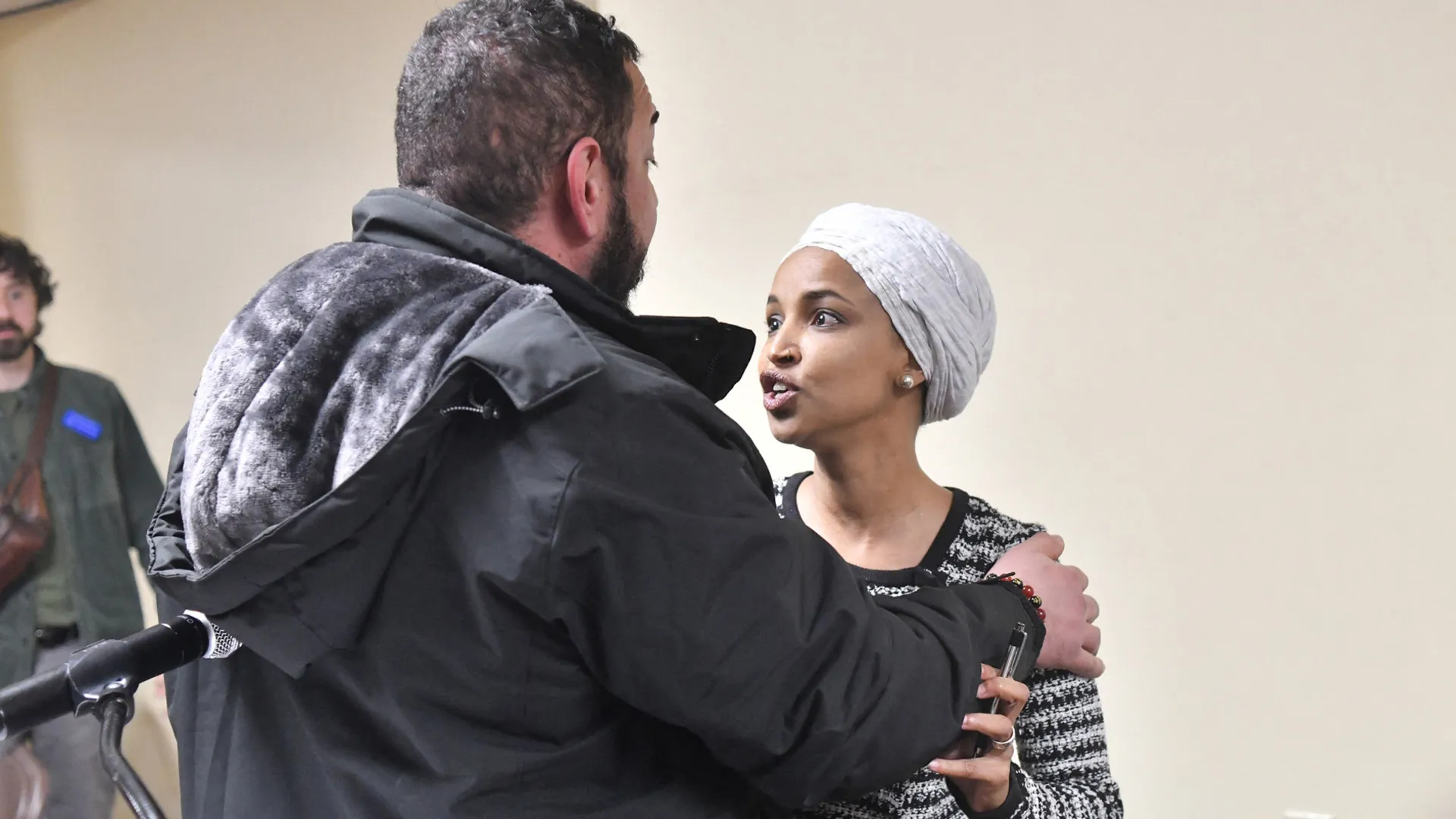US judge orders release of five-year-old and father from ICE detention | Migration News
A federal judge in the United States has ordered the release of a five-year-old boy and his father from a facility in Texas amid an outcry over their detention during an immigration raid in Minnesota.
In a decision on Saturday, US District Judge Fred Biery ruled Liam Conejo Ramos’s detention as illegal, while also condemning “the perfidious lust for unbridled power” and “the imposition of cruelty” by “some among us”.
Recommended Stories
list of 4 itemsend of list
The scathing opinion came as photos of the boy – clad in a blue bunny hat and Spider-Man backpack as Immigration and Customs Enforcement (ICE) officers took him away in a suburb of the city of Minneapolis – became a symbol of the immigration crackdown launched by President Donald Trump’s administration.
“The case has its genesis in the ill-conceived and incompetently-implemented government pursuit of daily deportation quotas, apparently even if it requires traumatizing children,” Biery wrote in his ruling.
“Ultimately, Petitioners may, because of the arcane United States immigration system, return to their home country, involuntarily or by self-deportation. But that result should occur through a more orderly and humane policy than currently in place.”
The judge did not specify the deportation quota he was referring to, but Stephen Miller, the White House chief of staff for policy, has previously said there was a target of 3,000 immigration arrests a day.
The ongoing crackdown in the state of Minnesota is the largest federal immigration enforcement operation ever carried out, according to federal officials, with some 3,000 agents deployed. The surge has prompted daily clashes between activists and immigration officers, and led to the killings of two American citizens by federal agents.
The deadly operation has sparked nationwide protests as well as mass mobilisation efforts and demonstrations in Minnesota.
According to the Columbia Heights Public School District in Minneapolis, Liam was one of at least four students detained by immigration officials in the suburb this month.
Columbia Heights Public Schools Superintendent Zena Stenvik said ICE agents took the child from a running car in the family’s driveway on January 20, and told him to knock on the door of his home, a tactic that she said amounted to using him as “bait” for other family members.
The government has denied that account, with Department of Homeland Security (DHS) spokesperson Tricia McLaughlin claiming that an ICE officer remained with Liam “for the child’s safety” while other officers apprehended his father.
Vice President JD Vance, who has vigorously defended ICE’s tactics in Minnesota, told a news conference that although such arrests were “traumatic” for children, “just because you’re a parent, doesn’t mean that you get complete immunity from law enforcement”.
The Trump administration has said that Conejo Arias arrived in the US illegally in December 2024 from Ecuador, but the family’s lawyer says they have an active asylum claim that allows them to remain in the country legally.
Following their detention, the boy and his father were sent to a facility in Dilley in Texas, where advocacy groups and politicians have reported deplorable conditions, including illnesses, malnourishment and a fast-growing number of detained children.
Texas Representatives Joaquin Castro and Jasmine Crockett visited the site earlier this week. Liam slept throughout the 30-minute visit, Castro said, and his father reported that he was “depressed and sad”.
Biery’s ruling on Saturday included a photo of the boy, as well as several Bible quotes: “Jesus said, ‘Let the little children come to me, and do not hinder them, for the kingdom of heaven belongs to such as these’,” and “Jesus wept”.
The episode, Biery wrote, made apparent “the government’s ignorance of an American historical document called the Declaration of Independence”. Biery drew a comparison between Trump’s administration and the wrongdoings that then-author, future President Thomas Jefferson, mounted against England’s King George, including sending “Swarms of Officers to harass our People” and creating “domestic Insurrection”.
There was no immediate comment from the Department of Justice and DHS.
The Law Firm of Jennifer Scarborough, which is representing Liam and his father, Adrian Conejo Arias, said in a statement that the pair will soon be able to reunite with the rest of their family.
“We are pleased that the family will now be able to focus on being together and finding some peace after this traumatic ordeal,” the statement said.
Minnesota officials have been calling on the Trump administration to end its immigration crackdown in the state. But a federal judge on Saturday denied a request from Minnesota Attorney General Keith Ellison and other officials to issue a preliminary injunction that would have halted the federal operation.
Trump, meanwhile, has ordered DHS to, “under no circumstances”, get involved with protests in Democratic-led cities unless they ask for federal help, or federal property is threatened.

